Mushroom edibles are tripping up users
The psychedelics can sometimes have questionable components
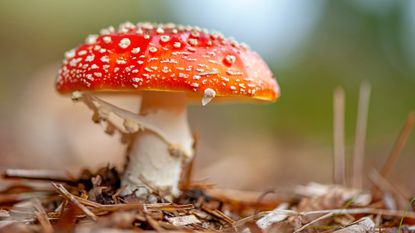

The company Prophet Premium Blends recalled its Diamond Shruumz edible mushroom products when several people became ill after consuming them. Psychedelics are growing in popularity, creating a market for accessible methods of consumption. Some experts have touted the potential benefits of magic mushrooms, especially for mental health treatments. However, these products lack regulation and so their contents are sometimes inexplicit and potentially unsafe.
What are mushroom edibles?
There are a variety of species of psychedelic mushrooms. Psilocybin mushrooms, also called magic mushrooms, contain the chemical psilocybin which "can cause people to experience distorted sights and sounds and lose their sense of time and space," as well as cause people to "feel intense emotions ranging from bliss to terror and may have physical side effects such as increased heart rate or nausea," said the National Institute on Drug Abuse.
The other major variety of psychedelic mushroom is the Amanita muscaria, which "contains a number of chemicals, the most notable being muscimol, a hallucinogenic compound that can alter mood, perception and behavior," said NBC News. While psilocybin has been considered for its potential benefits, the compounds in the Amanita muscaria can be toxic. However, what constitutes a safe dosage of either compound is still unknown.
Subscribe to The Week
Escape your echo chamber. Get the facts behind the news, plus analysis from multiple perspectives.

Sign up for The Week's Free Newsletters
From our morning news briefing to a weekly Good News Newsletter, get the best of The Week delivered directly to your inbox.
From our morning news briefing to a weekly Good News Newsletter, get the best of The Week delivered directly to your inbox.
Magic mushrooms have made their rounds recreationally in the form of edibles. Mushroom edibles are designed for microdosing, a usage that "refers to consuming small amounts of psychoactive or hallucinogenic substances, enough to reap the benefits while minimizing more debilitating effects," said NBC News. The problem is that these products are largely unregulated and several people have become sick and required hospitalization after consuming them.
"There is a lot of interest in the therapeutic potential for psilocybin and for good reason. But at the same time, a growing industry may be trying to capitalize on this interest by marketing other mushrooms," Eric Leas, an assistant professor at the UC San Diego Herbert Wertheim School of Public Health and Human Longevity Science said in a press release. "For example, some manufacturers are calling Amanita muscaria products 'magic mushroom gummies' and not disclosing what mushroom the gummies contain, or not making it clear Amanita muscaria is a different mushroom than psilocybin and has essentially no clinical evidence supporting its use as a therapy."
Mushroom edibles are considered a dietary supplement, which lacks proper federal oversight. Diamond Shruumz edible mushroom products have caused seizures, loss of consciousness, agitation, nausea and vomiting. The effects are a sharp contrast to what the product advertises as its ingredients. "Several toxicology experts said the mushrooms listed as ingredients, such as lion’s mane or ashwagandha, don’t produce the potent effects that the company touts, like relaxation or euphoria," said NBC News. After the Food and Drug Administration tested the products, they found the bars had "higher than normal amounts" of muscimol along with 4-AcO-DMT, also called psilacetin, a "semisynthetic psychoactive drug that's similar to psilocybin, but not the real thing," said Slate. The health effects of psilacetin have not been widely studied. "There's not great quality control around some of these products to know exactly what's in them," Chris Hoyte, the medical director of the Rocky Mountain Poison Center, said to The New York Times.
Are they all bad?
Some experts and users swear by the therapeutic abilities of magic mushrooms. "People who are dealing with anxiety, depression, addictions or other types of mental health conditions that can be quite difficult to treat are trying to basically DIY and give themselves these different types of natural remedies," Albert Garcia-Romeu, a psychologist at Johns Hopkins University School of Medicine, told Slate. Interest in psychedelic mushrooms including Amanita muscaria has grown exponentially recently.
The lack of regulation on the product is the biggest risk. "Somebody could slap a label on a package saying it contains four grams of mushrooms, and really, it contains a synthetic," Caleb King, one of the founders of Tryptomics, a Colorado lab that began testing mushroom chocolate bars bought at San Francisco vape shops, said to The Washington Post. "So it comes down to the consumer having to do their research before they're going to be consuming anything." Banning magic mushroom products would also not help the situation. "It's kind of like whack-a-mole, where if you prohibit psilacetin then something else might crop up," Mason Marks, a senior fellow at the Petrie-Flom Center for Health Law Policy, Biotechnology and Bioethics at Harvard Law School, said to NBC News. "Prohibition is not the solution, but educating people about this can be quite helpful."
Create an account with the same email registered to your subscription to unlock access.
Sign up for Today's Best Articles in your inbox
A free daily email with the biggest news stories of the day – and the best features from TheWeek.com
Devika Rao has worked as a staff writer at The Week since 2022, covering science, the environment, climate and business. She previously worked as a policy associate for a nonprofit organization advocating for environmental action from a business perspective.
-
 What are the lessons from Ukraine's Russia incursion?
What are the lessons from Ukraine's Russia incursion?Talking Points And what do they mean for Putin's red lines?
By Joel Mathis, The Week US Published
-
 Harris claims steadfast values in CNN interview
Harris claims steadfast values in CNN interviewSpeed Read This was Harris' first major television interview since she became the Democratic presidential nominee
By Peter Weber, The Week US Published
-
 Israel, UN agree to Gaza pauses for polio vaccinations
Israel, UN agree to Gaza pauses for polio vaccinationsSpeed Read Gaza's first case of polio in 25 years was confirmed last week in a 10-month-old boy who is now partially paralyzed
By Rafi Schwartz, The Week US Published
-
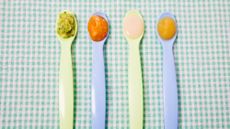 Baby food is not as healthy as it should be
Baby food is not as healthy as it should beUnder the Radar Labels are leaving things out. And brands are highlighting only what they want to.
By Devika Rao, The Week US Published
-
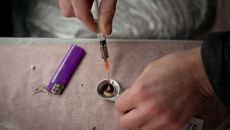 Scottish drug deaths: what's gone wrong?
Scottish drug deaths: what's gone wrong?The Explainer The latest figures show an increase in drug misuse deaths in Scotland
By Richard Windsor, The Week UK Published
-
 The battle for abortion buffer zones
The battle for abortion buffer zonesThe Explainer A 2023 law banning protests around clinics remains unenforced amid dispute over 'silent prayer'
By Harriet Marsden, The Week UK Published
-
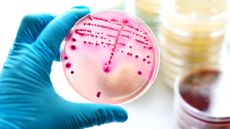 Why gonorrhoea is becoming 'untreatable'
Why gonorrhoea is becoming 'untreatable'In the Spotlight Infections hit record high as experts warn about rise in antibiotic-resistant cases
By Elizabeth Carr-Ellis, The Week UK Published
-
 What is POTS and why is it more common now?
What is POTS and why is it more common now?The explainer The condition affecting young women
By Devika Rao, The Week US Published
-
 Hongchi Xiao: slapping therapy 'master' convicted of manslaughter
Hongchi Xiao: slapping therapy 'master' convicted of manslaughterThe Explainer Alternative therapy has amassed 'cult-like following' worldwide, but 'self-healing' practice led to deaths of two diabetics
By Harriet Marsden, The Week UK Published
-
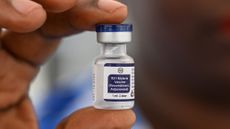 Have we defeated malaria?
Have we defeated malaria?The Explainer Roll-out of low-cost vaccine means a world free from disease that claims 600,000 lives a year 'finally within sight'
By The Week UK Published
-
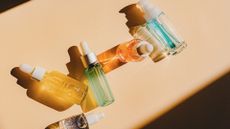 Neurocosmetics: the beauty trend blending mental health and skin care
Neurocosmetics: the beauty trend blending mental health and skin careThe Explainer Could a moisturizer really shift your mood?
By Theara Coleman, The Week US Published